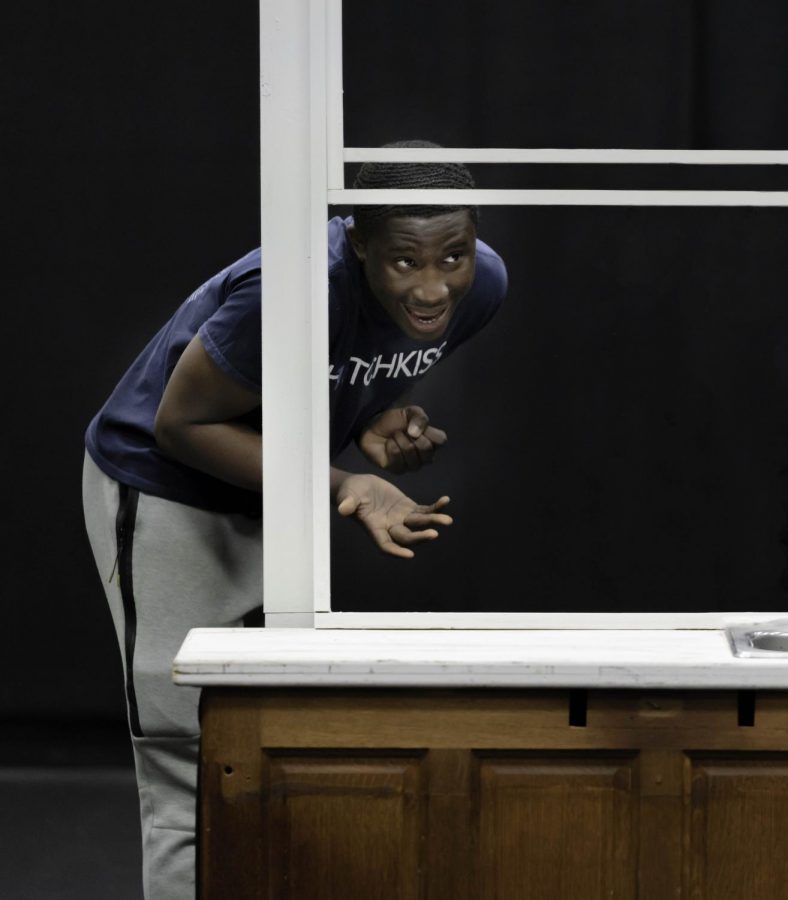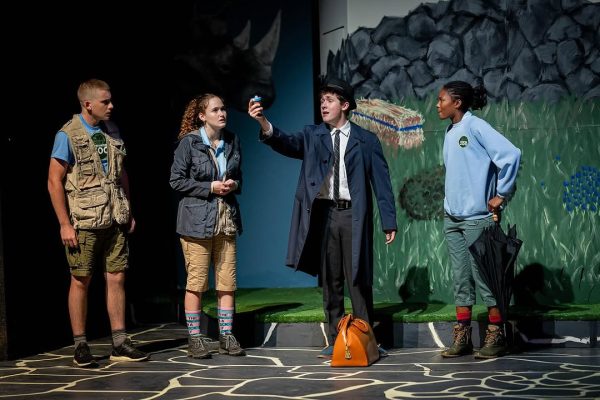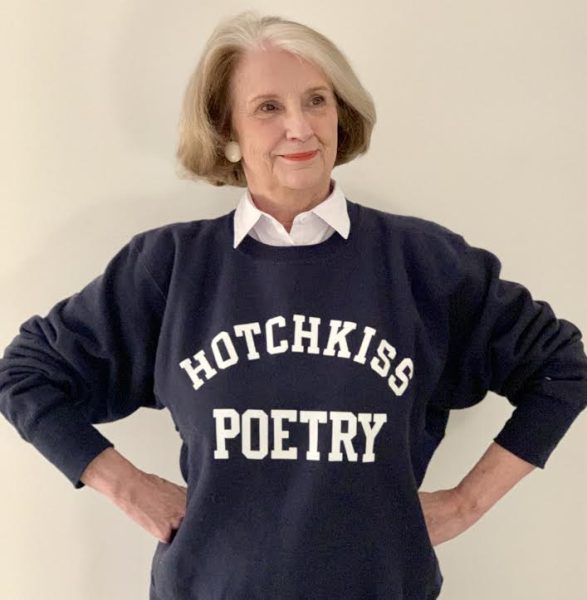Artist of the Issue: Souleman Toure ’19
Souleman Toure ’19 gestures through a window during a Black Box rehearsal last year.
Souleman Toure ’19, a four-year senior, has taken Theatre in the Humanities program and performed in a variety of mainstage and Black Box productions.
Mr. Parker Reed, an instructor in theatre and English, who has done extensive work with Toure, said, “I think Souleman has a natural charisma; there’s something about him that makes [others] want to watch him. When he’s on the stage…there’s something electric, … there’s something particularly enchanting about the kid, something you can’t teach. You just have it. [Souleman] influences the stage as a leader. …He’s generous, not only with his time, but with his energy, and so he takes it upon himself to take care of tasks that seem a little tedious, that aren’t exciting.”
How and when did you start pursuing theatre?
I was a Prep on the farm, and I was reciting Hamlet! I had no idea who Shakespeare was at the time. I just knew a friend from back home was memorizing [the] “To be, or not to be” [speech], and so I tried to do the same. After my recitation, Mr. and Mrs. Reed congratulated me on my performance and suggested that I audition for the winter play. I had never taken any acting classes before Theatre 150 and certainly did not perform in any plays before my role in the winter production, Measure for Measure. I was supported by good castmates and the Reeds, which led me to continue pursuing theatrical opportunities. They made it enjoyable and inspired me to continue acting.
How do you adapt to new characters and roles?
I use the skills I’ve developed and analyze the script. I can’t make an audience believe if I don’t know what is being said. Before I understand the character, I understand the play. When I analyze, I look up unfamiliar words, find motives, and look for objectives. It’s easier to learn the lines when you’ve read over the text multiple times and understand it well. I look for the objectives of other characters and understand what they are saying as well. To build an authentic dynamic relationship and to tell a clear story, you must be able to react to what your castmates are saying. After I understand the play…I experiment, trying to discover what tactics are most effective for achieving a character’s objective. I have fun making bold choices physically and vocally. Sometimes they’re really absurd and extreme, but the creativity and flexibility [that comes from experimentation] is key to being a versatile actor.
What motivates you to pursue theatre?
I enjoy the art of storytelling. A group of neuroscientists have discovered that watching live theater can synchronize the heartbeats of an audience.
Are there any actors who inspire you?
I get most of my inspiration from those around me. I believe everyone has good acting moments and the potential to be a good actor. It’s not always on the biggest screens or the mainstages that we find the best actors. It’s those who are dedicated, lift those around them, while also eloquently telling a clear story with [their] body and voice that impress me.
What has been your most memorable moment as an actor?
[When] working with castmates [and] everything just clicks. The lines are perfect, the acting choices are bold, and there is a resonance on the stage. When moments like those are replicated on performance days and we feel the audience react, we see they are engaged. When the energy you give to an audience is reciprocated and you connect with them, it makes performing a pleasure; when you look into a person’s soul and have them on the edge of their seats waiting for the next line.






